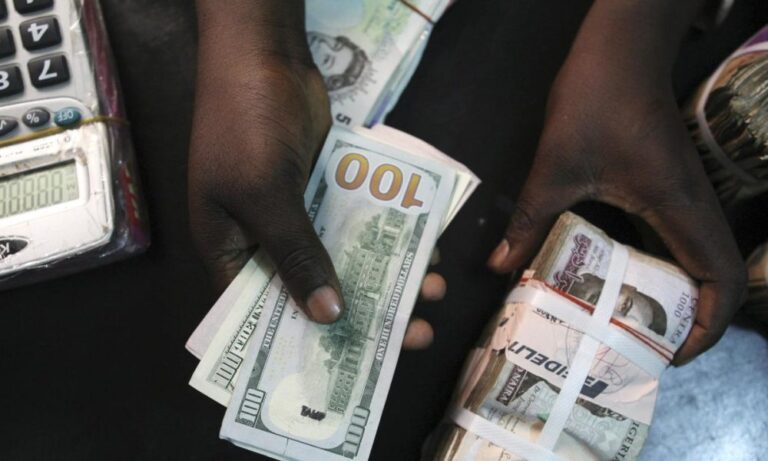
There are strong indication that the nation’s economy might be in for tougher times ahead.
This is as the country’s foreign exchange reserves have dipped by $1.82 billion over the past four months.
OsunDaily News gathered that official data and reports reviewed indicates that the forex reserves had suffered consecutive declines since the beginning of this year.
It was learnt that the forex reserves dropped by $47.83 million last week to close the four-month period at $35.36 billion as against $37.08 billion recorded at the close of 2022.
The April 2023 closing position represented the lowest point in recent months.
The situation has however created fears of harder times for Nigerians as economic analysts have forecasted that the downward trend might continue for some time.
Reacting to the development, a member of the Presidential Economic Advisory Council (PEAC), and Managing Director of Financial Derivatives Company (FDC), Bismarck Rewane, described the outlook for the nation’s forex reserves as negative.
According to him, the country’s external imbalance and limitation of the Central Bank of Nigeria (CBN)’s supply of foreign exchange to support the naira at the forex market.
OsunDaily News, however, understands that the naira is currently trading at N740.00/$ at the parallel market – N277 gap ahead of N463.00 per dollar at the official Investors and Exporters (I & E) Window of the Central Bank of Nigeria (CBN).
But Rewane told The Nations that CBN’s inability to meet up the pressure of its managed exchange rate would lead to further depreciation of the naira.
He submitted that “The external reserve is expected to continue its downward trend in the coming weeks as major sources of forex inflows deteriorate.
“This would be compounded by an adverse ruling in the ongoing P & ID trial. The $11bn arbitral award accounts for about 30 per cent of gross external reserves.”
While analyst at Cordros Capital reiterated their position that the forex crisis “will remain over the short-to-medium term” as there is no positive signal that denotes an improvement in forex supply relative to the pre-COVID-19 levels, their colleagues at at Afrinvest (West Africa) said the prospects for Nigeria’s oil earnings is less enthusiastic, and that irrespective of the global oil dynamics, the market may run on a negative sentiment in the weeks ahead.
The position of analysts from Cordros Capital is that “Moreover, considering the tepid accretion to the reserves given low crude oil production and elevated premium motor spirit (PMS) under-recovery costs, foreign portfolio investors (FPIs) who have historically supported supply levels in the Investors & Exporters Window will be needed to sustain forex liquidity levels in the medium to long-term.
“Given an unclear foreign exchange framework, an uninspiring macro narrative, elevated global interest rates, and heightened global uncertainties.
“While we believe a new government will be a breather for the country in the short term as sentiments are likely to improve, we think foreign capital inflows will remain low compared to pre-COVID levels over the medium term in the absence of significant reforms in the forex, fiscal and monetary policy frameworks.”
But experts from Afrinvest (West Africa) asserts that the capital importation was “primarily due to the investors’ aversion to subsisting forex policies.
“Specifically, the prominence of capital controls to manage the ongoing forex crisis complicates fund repatriation from Nigeria and, by the same token, discourages new investments by offshore players.”
According to them, the existence of a multiplicity of forex windows muddles clarity around forex administration, subsidises the government sector at the expense of the large private economy, and contributes to the widening premium of parallel market rates to the official market.
However, experts in the industry have called for major forex and macroeconomic reforms to stem decline and encourage direct and indirect forex inflows into the country.


